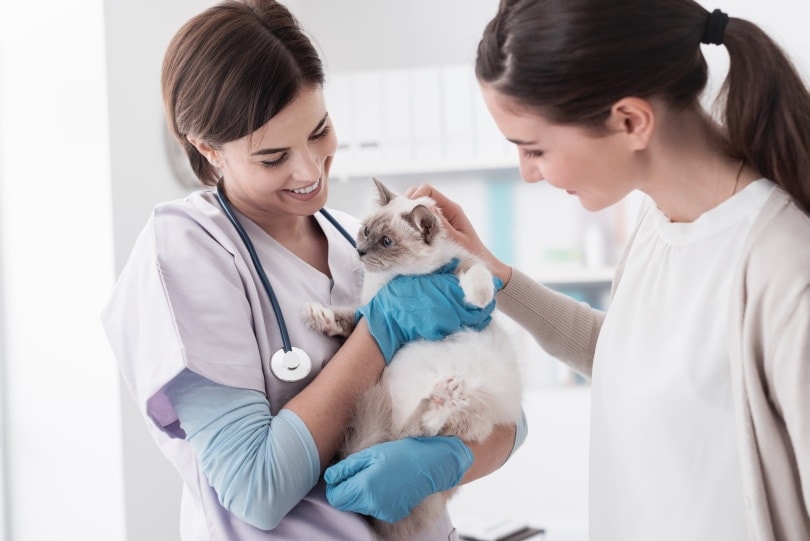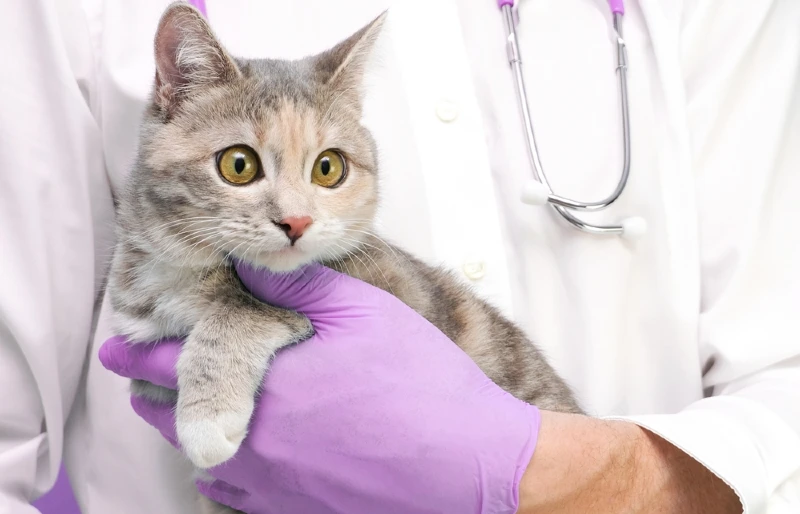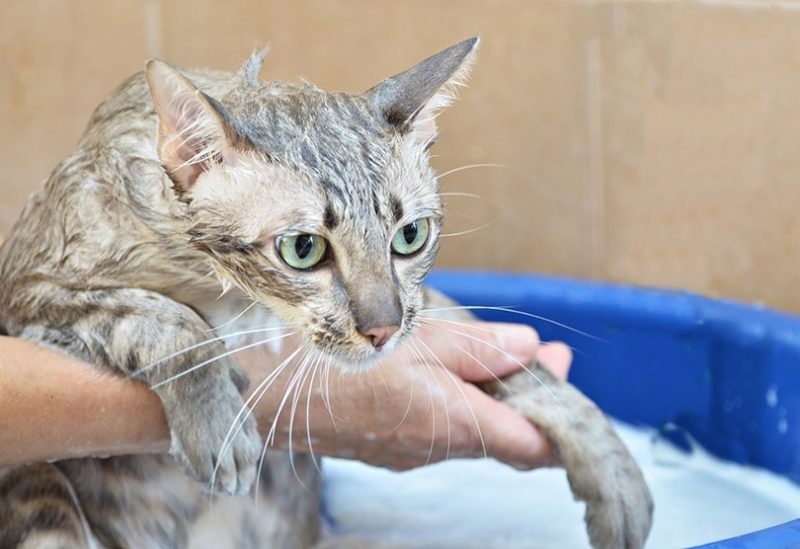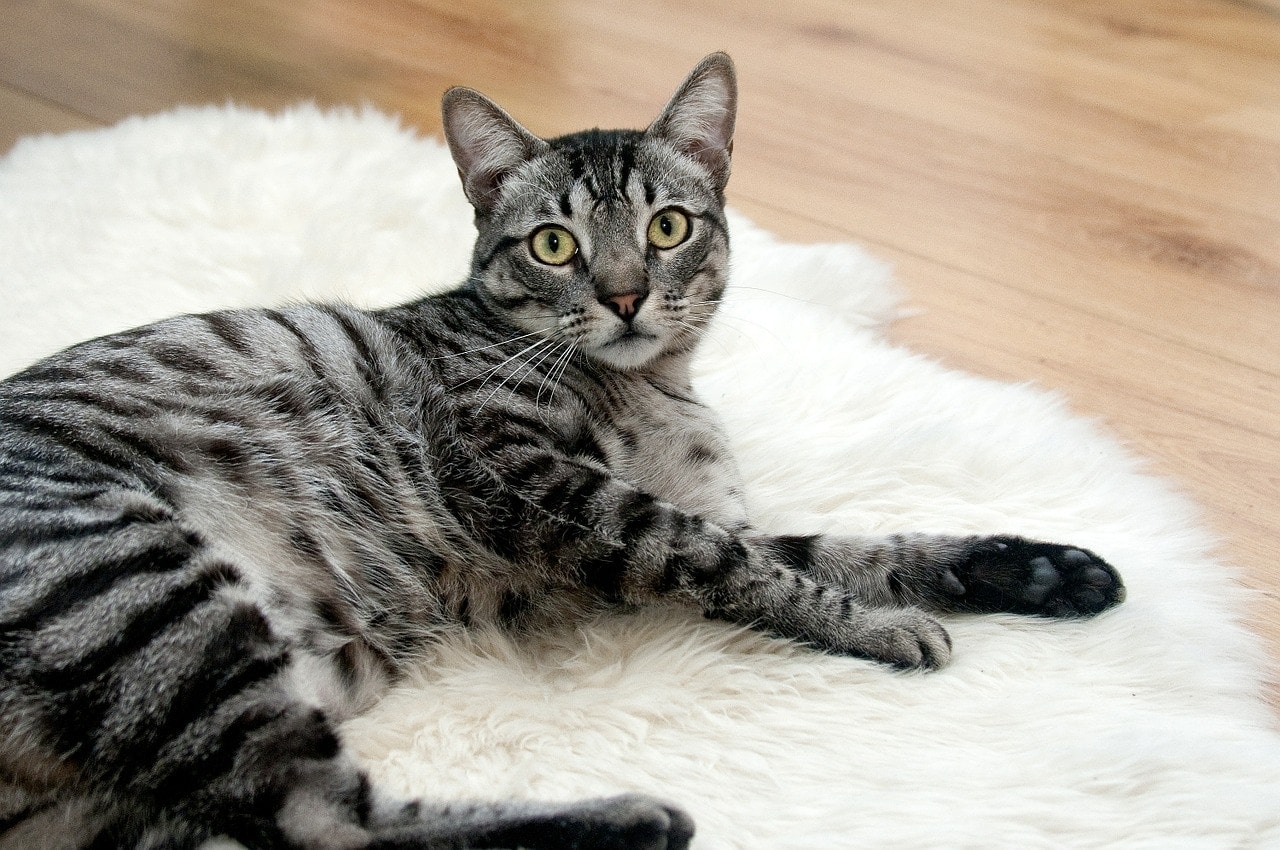How Much Does A Cat DNA Test Cost? 2024 Price Guide
Updated on

Click to Skip Ahead
DNA testing has been a boon for humanity, resulting in murder cases being solved, relational connections, peace of mind, and discovery of ancestry. Various cat DNA tests are available too, with the standard tests ranging from around $100 to $150. More expensive cat DNA tests offer lifetime updates on your cat’s breed and health, and even full genome sequencing.
Not only are DNA tests effective and informative to humans, but they’re an excellent way to understand your pet’s unique traits, and where they come from too.
Whether you purchase a cat DNA test on the lower or higher end, you’ll get to understand and learn much more about your cat than ever before.
Why Cat DNA Tests Are Worth It
There are so many reasons to adopt a cat from a shelter. You will save a life while freeing up space for another abandoned kitty to be sheltered too. It’s more affordable, you have many options to choose from, and you don’t have to get a kitten.
Unfortunately, it’s not common that the animal shelter will know much about where your cat came from, what specific breed it is, its ancestry, or possible predisposed health issues. If the shelter claims that they know the breed of cat you’ve adopted, they’re usually guessing by the way your cat looks, but they may have done their own DNA testing on your cat.
This is where cat DNA testing comes in. Whether you’re curious about why your cat looks a certain way, is so big, or you’re concerned about its health and want to know if you can take any precautionary health measures or make dietary changes, DNA tests can give you the answers and peace of mind you need.
A cat DNA test also offers information about which wild cats your kitten is most similar to, along with the traits your kitten will most likely have as they mature.
Unfortunately, the DNA test results won’t tell you exactly what type of breed your cat is, but rather which breeds it’s most similar to. Even though you may think your cat is completely mixed, there will always be a few breeds to which it is more similar.

Do Vets Do Cat DNA Testing?
If your vet performs a DNA test on your cat, they will most likely take blood samples from your cat and test them as there is much more DNA in the blood. The DNA test is more likely to offer accurate results by taking blood samples and leaves less possibility of sending in more DNA.
Taking DNA through blood collection may upset your cat and cause stress, while using the cat at-home DNA test allows you to keep your cat comfortable in their own environment.
However, at-home DNA tests have a higher chance of offering no information because you didn’t manage to get enough DNA from your cat. You may also struggle to get the DNA from your cat because you’re not experienced in holding your cat securely enough to gather their DNA.
Performing a home cat DNA test isn’t painful for your furry friend, and although your vet can do it, it’s easy enough to do yourself.
How To Perform a Cat DNA Test
Performing the cat DNA test is easy for the most part. You just need to observe your cat and determine the best time to collect their DNA. Here are a few steps to ease you through the process.

Order Your Test
Before getting too carried away, make sure you’ve researched the type and price of cat DNA test you want to purchase and proceed to order it online.
Read The Instructions
You may not be big on reading instructions, but this is one of those times when it’s very necessary. Although all cat DNA tests are similar, it would be a waste to have to discard it because you guessed what to do and missed a step or cross-contaminated it.
Isolate Your Cat
- Place the cat you want to test in a room your other pets can’t access.
- Remove any food or shared bowls from the room.
- Start this process about an hour before doing the test.
Wait for Your Cat To Calm Down
The worst time to pop your swab into your cat’s mouth is when they’re excited and in a playful mood. They’re going to think you’re playing a game, and you may not be able to gather enough DNA for accurate results. You may also get nipped in the process!
Instead, wait a while until your cat is in a calm, cuddly mood. If your cat is relaxed, you’re going to have a much higher success rate.
Swab Your Cat’s Cheeks
Thankfully, you only need to swab your cat’s cheeks and not their tongue. Your cat can keep their jaws and teeth shut throughout the whole process, which would be its natural reaction anyway, making it easier for you.
Pop the swab into your cat’s mouth and glide it along their cheek. Soothe your cat during this process by stroking it and keep a treat on hand, ready to reward them once the process is over.
Try Again Later
If your cat isn’t complying, try again later. Perhaps your cat is too active for the task or has become too riled up. Wait until they’re more relaxed or ask a friend to help you comfort your cat while you swab its cheek.
Send Off The Swab
Send in your cat’s swab once you’ve successfully completed the process. It’ll usually take a few weeks to receive your cat’s results. Remember that information about cat genetics is still largely unfamiliar, and discoveries are constantly being made. Occasionally check on your cat’s results as new information may have been added.
Recommended Cat DNA Tests
1. Wisdom Panel Complete Cat DNA Test
The Wisdom Panel Complete Cat DNA Test was developed by vets and geneticists. The information you gain from the results will not only help you understand your cat better but will be beneficial to your cat’s vet as you’ll be able to inform them of your cat’s blood type, genetic conditions, and health risks.
This DNA test doesn’t screen for allergies, but it does offer information about where your cat is from. It also provides you with information on their traits and provide you with a breed breakdown.
The test kit comes with two swabs, which you’ll need to use and send back. It improves your chances of gathering enough DNA for the company to provide you with accurate information. Unfortunately, you have to swab your cat for 15 seconds with each swab, and they’re not going to enjoy it.
Their website is easy to use and once you send your cat’s swabs in, they keep you updated until you receive the results, which typically arrive within 2–3 weeks.
- Developed by experts
- You’ll receive an accurate breed breakdown.
- Provides information on your cat’s blood type, breed, health, ancestry, and traits.
- Beneficial to your vet
- The website is easy to use
- Fast turnaround
- You have to swab your cat’s cheek for 15 seconds, twice
- It doesn’t test for allergies
2. Basepaws Cat DNA Test
If you’re looking to get your money’s worth, the Basepaws Cats DNA Test is the option for you! Why? Because you will get breed updates for life and become a part of the Basepaws community.
With this DNA test, you’ll receive one swab that you need to place into the pocket of your cat’s cheek for around 10 seconds. It’s easy to perform, and you’ll receive a detailed and in-depth report back on the results. You should receive your results within 4–6 weeks.
The test covers many traits and health issues and informs you on what breed your cat is most similar to. It even provides you with a wild cat index, informing you on what wild cats your cat is most similar to, ranking them by percentage.
- Lifetime breed updates
- One swab
- Detailed and in-depth results
- Offers health, trait, breed, and wild cat index information
- Results can take a long time
Conclusion
While cat DNA tests may seem slightly pricey, the benefit is that you get to learn more about your cat and where it came from. To many owners, that information is invaluable and cat DNA tests are well worth the cost.
They’re also fairly easy to perform by yourself, saving you from paying a visit to a vet. If your vet does perform a DNA test on your cat, you will end up paying more, and your cat won’t be as comfortable as they would be from their home.
Although cat DNA tests don’t offer the same vast amount of information as dog DNA tests, new information is updated frequently. If you’d like to get a DNA test for your cat, we recommend the Wisdom Panel Complete Cat DNA Test or the Basepaws Cat DNA Test.
Featured Image Credit: Stock-Asso, Shutterstock















